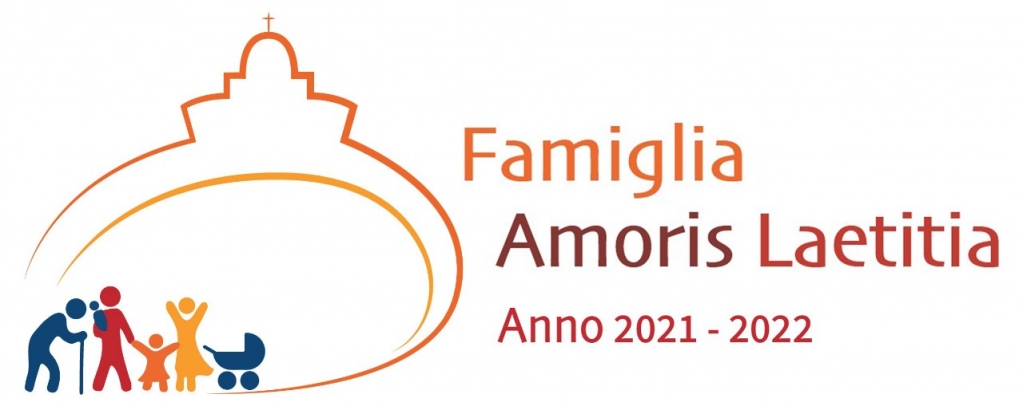At the wish and encouragement of the Holy Father, tomorrow, the Solemnity of St. Joseph, the Special Year "Amoris laetitia Family" will begin on the occasion of the fifth anniversary of the publication of the encyclical.
The announcement about the family
At the press conference held in the Sala Stampa of the Holy See via streaming, the Cardinal Prefect of the Dicastery for the Laity, Family and Life, Kevin Farrell, said that "the persistent international pandemic situation worries and distresses us all, but this should not paralyze us. On the contrary, in this particular moment of turmoil, Christians are called to be witnesses of hope. Indeed, it is part of the Church's mission to constantly proclaim the good news of the Gospel. It is worth noting that the Apostolic Exhortation Amoris Laetitia opens with these very words: "The Christian proclamation of the family is truly good news" (AL 1).
"For this reason," he continued, "it is more timely than ever to dedicate an entire pastoral year to the Christian family, because presenting to the world God's plan for the family is a source of joy and hope; it is truly good news!"
Three aspects of renovation
He affirmed that it was the Holy Father who decided to convoke this special Year on the family, which will begin tomorrow, March 19, on the Solemnity of St. Joseph and on the fifth anniversary of the publication of Amoris Laetitia. Both are significant anniversaries.
Cardinal Farrell wanted to underline three aspects of the pastoral renewal to which Pope Francis exhorts us: the first is the need for greater collaboration; the second is a change of mentality; and the third is the formation of formators themselves.

"Let us begin, then," concluded the Prefect of the Dicastery, "this Year by seeking to have towards families the attitude of paternity that we learn from St. Joseph, a paternity composed of welcome, strength, obedience and work. At the same time, let us try to be more and more a 'mother' Church for families, tender and attentive to their needs, capable of listening, but also courageous and always firm in the Holy Spirit".
New impetus for family ministry
The intervention of Prof. Gabriella Gambino, Undersecretary of the Dicastery, focused more on concrete questions of the pastoral care of the family. "This year," she said, "is an occasion to give a boost to pastoral care of the family, trying to renew the modalities, strategies and perhaps even some objectives of pastoral planning: no longer a pastoral care of failures, says the Holy Father in Amoris Laetitia, but a pastoral care that knows how to revalue the beauty of the sacrament of marriage and of Christian families."
Revaluing the encyclical
Professor Gambino encouraged us to reread Amoris laetitia in order to rediscover the full value of the document and of family pastoral care, and not to govern marriage and family accompaniment by the mere criterion of "can or cannot".
"The Pope has repeatedly explained that if Amoris Laetitia is read exclusively with the criterion of "can do or can't do" one goes astray and fails to grasp its true purpose. Unfortunately, in recent years, reflection and debate have focused on only part of the document. In this Year, therefore, Amoris Laetitia must be read as a "whole" and greater value must be given to all the spiritual and pastoral aspects contained in the document, to which perhaps little importance has been given and which are then the ones that most interest the vast majority of families".
Cross-cutting projects
Gambino recalled that the Dicastery itself has proposed twelve paths for renewing the pastoral care of the family: "The criterion: to make pastoral projects transversal, so that there are no longer watertight compartments. The accompaniment of children, young people, engaged couples and the elderly must be done in the light of an integral and unified vision of pastoral planning, which can be a source of great creativity. To put in dialogue the pastoral agents of the different areas, acting in a synodal spirit, is important to give continuity and gradualness to the path of growth in the faith of the laity".
A challenge for the Church
According to the undersecretary of the Dicastery, "we must recognize that many ecclesiastical structures, perhaps without being fully aware of it, are rather oriented towards the elderly or the unmarried. This is therefore a great challenge for the Church. All pastoral agents, therefore, should take families more into account, go out to meet them, find new ways, new times and new spaces to establish a dialogue with them and attend to them".
He assured that the Dicastery will be diligently involved in the dissemination of some pastoral tools for families, parishes and dioceses, in order to help and support the sometimes very laborious work of the local Churches.









